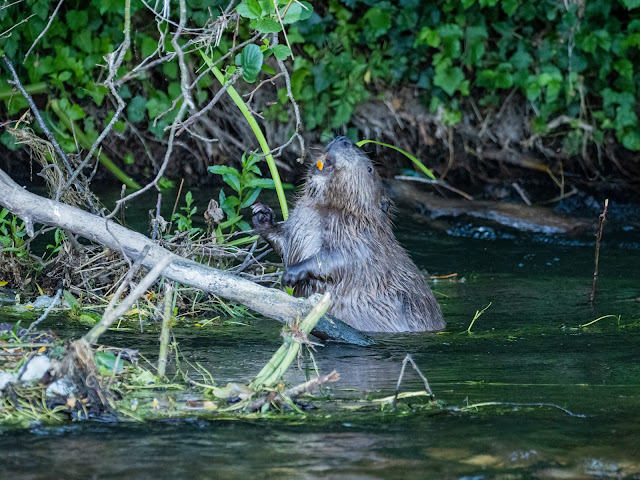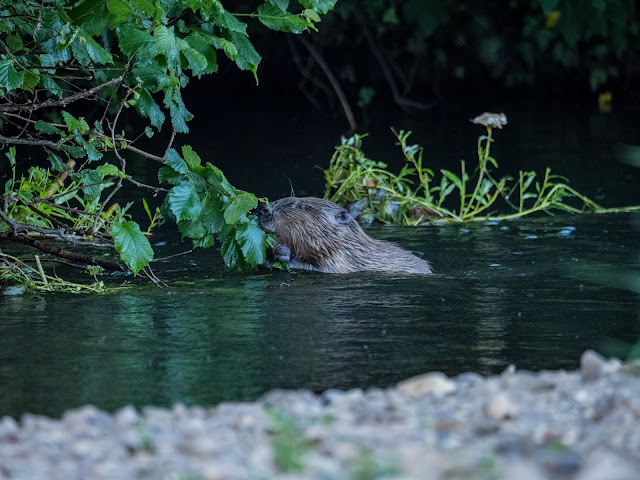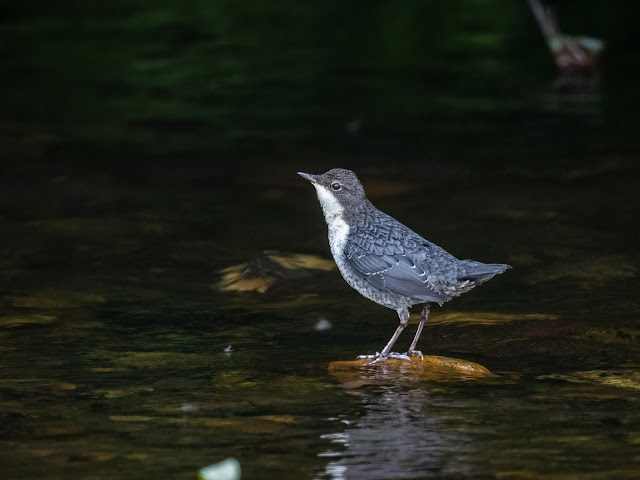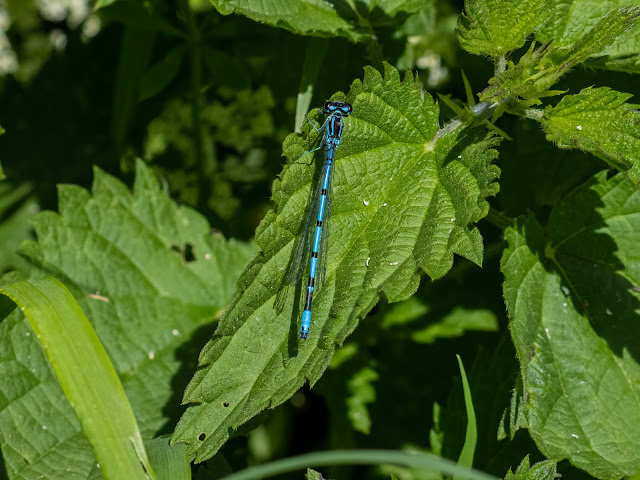On 12th June 2022, I visited the following sites:
River Otter at Otterton, Devon
RSPB Ham Wall near Glastonbury, Somerset
My visit to the River Otter at Otterton the previous evening (see here), had been excellent in respect of watching Beavers.
My second visit this morning from 5:15 a.m. to 7:45 a.m. proved to be even better with numerous photo opportunities.
I was able to watch and photograph Beavers in exactly the same area and, again, I believe that this included an adult and a presumed sub-adult or first year kit judging by their sizes.
In addition to the Beavers, the highlights, amongst 21 species recorded during my visit, were as follows (heard only records in italics): Kingfisher (2 sightings of presumably the same pair), Dipper (2 juveniles), Grey Wagtail (4), Chiffchaff (2 singing males), Blackcap (1 singing males), Nuthatch (1 calling bird), Great Spotted Woodpecker (1), Mallard (c.25 including ducklings)
After my second extremely rewarding walk along the River Otter, I drove around 1.5 hours north to RSPB Ham Wall near Glastonbury in Somerset.
RSPB Ham Wall has become one of my favourite birding locations in the UK in both spring and winter. It is a 265-hectare site at the heart of the huge area known as the Avalon Marshes. Previously owned and worked by the peat industry, it was born in 1994 when the land was acquired by the RSPB. The principal objective was to re-create vital reedbeds and wetlands and help the struggling Bittern population in the UK. The habitats that have been created are now a mature and thriving wetland made up of extensive reedbeds and open water, grassland and woodlands and, in addition to the now healthy population of Bitterns, the reserve is important for new species colonising the UK including Great White Egrets, Little Bitterns and Cattle Egrets all of which have bred in recent years.
I had planned on visiting RSPB Ham Wall during my trip in mid May 2022 but I had to re-arrange my itinerary due to rain. It was therefore nice to be able to visit during this trip, albeit again due to an amended itinerary arising from the cancellation of my sailing to Lundy island.
However, visiting several weeks later resulted, not unexpectedly, in less obvious abundance and diversity of bird species although my visit did prove excellent for butterflies, dragonflies and damselflies.
The highlights, amongst 27 species recorded during my visit, were as follows (heard only records in italics): Great White Egret (4), Lapwing (1), Common Redshank (1), Great Crested Grebe (6), Tufted Duck (c.10), Mallard (c.20), Shoveler (1), Mute Swan (11 plus 1 adult with 4 cygnets), Coot (c.20), Moorhen (1), Cormorant (8), Marsh Harrier (3), Reed Warbler (10+ seen plus many other singing males heard), Cetti’s Warbler (1 singing male), Reed Bunting (1 male), Common Whitethroat (1 singing male), Willow Warbler (5 singing males), Blackcap (4 singing males), Chiffchaff (1 singing male plus 3 other singing males heard), Swallow (2),
In addition to birds, I recorded the following butterflies: Small Tortoiseshell (30+), Brimstone (1), Red Admiral (1), Small White (1)
I also recorded the following dragonflies and damselflies …. Emperor Dragonfly (1), Broad-bodied Chaser (c.10), Four-spotted Chaser (c.10), Ruddy Darter (1), Blue-tailed Damselfly (100+), Common Blue and/or Azure Damselfly (100+)
Photo: Home Farm campsite
💚🦆 🦉🦋🐝🦊🦡🌼 🌳💚
Stay safe, stay well, stay strong, stay connected with nature













































No comments:
Post a Comment
If you feel like commenting on my blog, you can contact me by completing the comment form below. I will respond to all comments and enquiries and constructive criticism will always be welcomed.